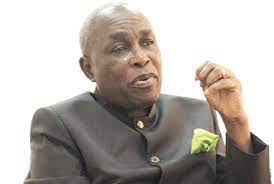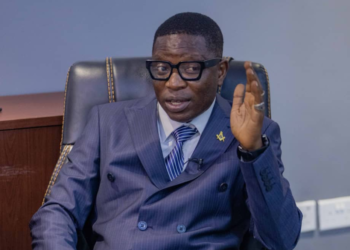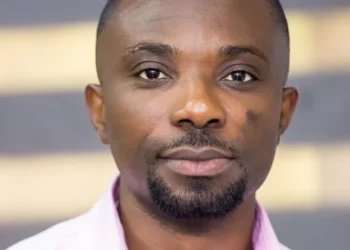Ghana’s long-standing Bawku conflict has been described as both deeply complex and entirely resolvable by seasoned Alternative Dispute Resolution (ADR) expert Austin Gamey.
In his view, the nation has not yet come to a full appreciation of what mediation truly entails, despite its promise as the most civilized and sustainable tool for ending entrenched communal strife like that of Bawku.
He noted, Ghanaians appear more comfortable with litigation and arbitration—methods he sees as limited in conflicts rooted in generations of mistrust, identity, and misunderstanding.
“That is about what we are so used to. And so when a real professional…is talking about mediation, it sounds like some effortless effort is being made, but that’s not the case.”
Austin Gamey
Having spent over fifteen years engaging with the issue, Gamey expressed strong confidence in the possibility of resolving the Bawku conflict.
He emphasized that the solution lies not in ordinary mediation or arbitration but in a professional, impartial process grounded in proven conflict resolution methods.
He emphasized that arbitration, often misunderstood as an easier route, can be even more rigid than the judicial system.

“Arbitration is even tougher sometimes than going to the Supreme Court. In the Supreme Court, you can have the opportunity to go for a review, but arbitration properly done is confirmed, and that’s the end of it.”
Austin Gamey
Professional Approach To Bawku Conflict Urged
Furthermore, Austin Gamey stressed that achieving lasting peace in Bawku requires state-mandated mediation—a structured approach that compels all parties to participate under a neutral, professionally managed process.
While he welcomed the involvement of the Otumfuo Osei Tutu II-led committee, he also highlighted the need to broaden the team of professionals facilitating the dialogue.
“We are millions of people in Ghana. We are available in the event that you need the support of other people; we will avail ourselves to support them.”
Austin Gamey

While acknowledging the critical role of security agencies in maintaining law and order, Gamey warned against viewing the military or police as conflict solvers.
“They are not trained mediators,” he stressed, pointing out that their job is to help de-escalate tensions while allowing the real work of mediation to unfold.
According to him, he tendency of aggrieved groups to go “pound for pound” against security forces, even attacking them, is a result of the deep mistrust and hostility that has festered over time.
For this reason, Gamey insisted that now more than ever, “this is a mediatable issue.”
He also called on national leaders to rethink Ghana’s over-reliance on court litigation.
According to Gamey, the country must shift from a “litigation happy-go-lucky type of nation to a more mediatable approach.”
Recalling a recent conversation with the Chief Justice, he reiterated his belief that “about 70% of all civil cases must be resolved through mediation processes and not going to the court to waste our time and energy there that way.”
Neutrality To Drive Peace Process
Moreover, Austin Gamey argued that true mediation—especially community-based mediation—requires specialized training in both mediation and coaching.
He firmly believes that the government should step aside from direct involvement in the process, not because the state lacks interest, but to avoid perceptions of political manipulation.

“There is the perception that governments yesterday [and] today have some kind of hand in it. That’s why it must be state-sponsored, but it shouldn’t sound like the government is responsible.”
Austin Gamey
What the Bawku conflict needs, according to him, is calm, trust, and trained professionals capable of using dialogue as a bridge to resolution.
Once the situation becomes less volatile, he noted, coaching-based mediation can guide communities into seeing themselves not as adversaries but as mutual winners. “Almost all people need some kind of guidance.”
“This is not about playing psychology with people. You can only use the traits of psychology, but the real thing is about having key mediation processes in place and a coaching technique to guide the people to have a conversation… ”
Austin Gamey
Accordingly, Gamey conveyed his optimism that peace in Bawku is attainable and that the community can emerge even stronger if the right professionals are given the mandate to intervene.
He emphasized the importance of supporting the Otumfuo Committee while ensuring that experienced mediators are deployed to assist the process effectively.
Indeed, if Ghana is serious about ending the Bawku conflict, then it must treat mediation not as a fallback plan but as a central and proactive strategy.
Mediation should no longer be considered a last resort when all else fails—it must be embraced as the first and most viable pathway to healing deep-seated divisions, restoring trust among the factions, and laying the foundation for durable peace.
Only through deliberate, inclusive, and expertly guided dialogue can the cycle of violence be broken and hope be restored to the people of Bawku.
READ ALSO: Stage Set For Pharmaceutical, Semiconductor Tariffs





















